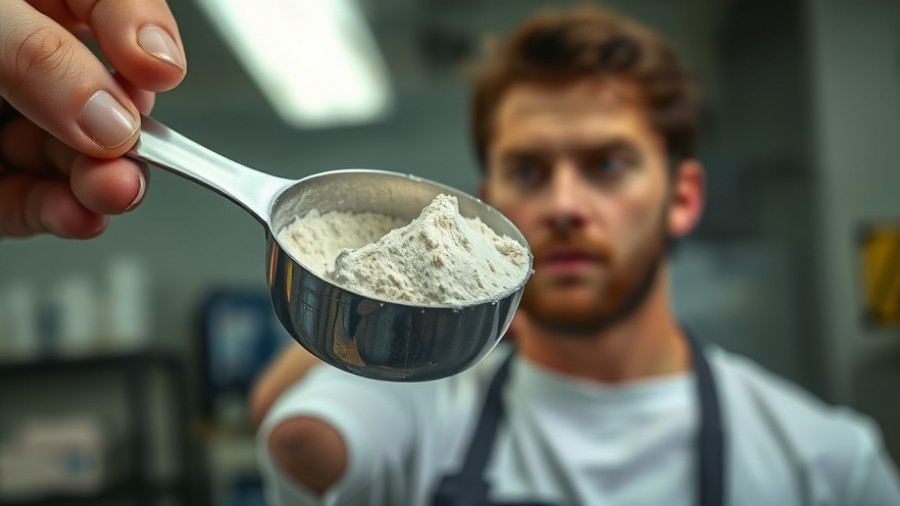
Uncovering the Heavy Metal Crisis in Protein Powders
A recent investigation has sparked alarm across the consumer health landscape, revealing that many protein powders contain concerning levels of lead and other heavy metals. The findings, which garnered significant media attention last week, involved testing from Consumer Reports of 23 different protein products, ranging from plant-based options to whey and beef-based supplements. Alarmingly, over two-thirds of the products tested were found to contain lead exceeding the safety threshold of 0.5 micrograms per serving. This raises important questions for health-conscious consumers about the safety of the supplements they consume daily.
In 'Lead contamination found in Protein Powders | New Investigation shocks consumers,' the discussion dives into the alarming levels of heavy metals found in popular protein shakes, sparking an essential conversation about safety in dietary supplements.
The Shocking Results
The investigation unearthed particularly troubling details: the plant-based protein powders tended to harbor significantly more lead than their whey counterparts. For example, the Naked Nutrition Vegan Mass Gainer contained 7.7 micrograms per serving, a staggering 10 times the threshold deemed concerning. This pattern continued as two other plant-based products were categorized as "to limit to once a week," meaning they also exceeded safe lead levels. With the average person often reaching for plant-based solutions to enhance their protein intake, this raises a crucial question about the hidden risks of what are perceived as healthier choices.
Why Does This Matter?
The implications of heavy metal contamination in protein powders are far-reaching. Lead exposure can pose serious health risks, particularly to vulnerable populations such as pregnant women and children. Understanding the source of this contamination is vital. As the report indicates, soil quality directly affects the levels of heavy metals in plant-based products. The reality is, the plant proteins we choose are only as clean as the soil they are grown in, and unfortunately, many crops are cultivated in contaminated areas.
Not All Protein Powders Are Created Equal
While some brands may have concerning levels of contaminants, others are stepping up by ensuring their products meet rigorous safety standards. The investigation highlighted some brands that had undetectable levels of lead, showcasing that quality and transparency are achievable in the protein powder market. Brands like Puori and Well-Being Nutrition emerged with products that passed even the strictest safety tests, demonstrating that informed purchasing decisions can make a difference.
What Should Consumers Do?
For consumers, this investigation serves as a wake-up call. Rather than settling for any product off the shelf, it’s essential to research brands and seek those that provide testing results and third-party certifications. Opting for reputable brands that prioritize consumer safety not only ensures better health outcomes but also encourages the industry as a whole to improve standards.
Decisions for Better Health
The takeaway is clear—while protein powders can be beneficial, they are not without risks. Consumers should feel empowered to opt for safer alternatives and prioritize products with verified safety standards. With the supplement industry being largely unregulated, it is incumbent upon informed consumers to demand better practices and transparency from manufacturers.
This newfound awareness about heavy metals in protein powders is more than a momentary panic; it is a call for consumers to take charge of their health decisions. Together, by making conscientious choices regarding the supplements we use, we can push for higher industry standards and healthier options for all.
 Add Row
Add Row  Add
Add 




Write A Comment